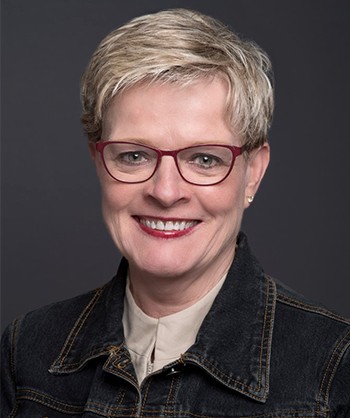
Jacquelyn B. James, PhD
“Keep busy and stay active.”
For many years, popular thinking about older adults has centered on this simple mantra. The most important thing retired adults can do, the thinking goes, is find ways to stay involved. Don’t just sit there—do something!
Perhaps this is in response to a time when later life was seen as a time of complete leisure or a time with little role definition, or few obligations to others. But is keeping busy enough? Perhaps not.
Recent observations at the Sloan Center on Aging and Work indicate that this focus on activity and involvement may be misguided. Activity is important, and certainly an improvement over the idea of retirement as a time to “sit on the porch,” but it’s not everything. For today’s generation of retirees, involvement is just the beginning. Increasingly, older adults are living and working in a way that demands a new mantra: it’s not just about staying involved as we age, but staying engaged.
As we know, growing old today is not what it used to be. Life expectancy has increased and older adults are healthier in many ways than previous generations were. For most of us, post-retirement is not merely a capstone stage of life, but a significant developmental period that will likely extend for many years. Consequentially, today’s older adults are not just looking for ways to kill time. They are working part-time and launching second careers; they are pursuing advanced training and education; and they are playing active roles in caregiving and raising their families. In all of these roles, older adults are doing much more than just finding ways to keep busy.
Recently, the Sloan Center on Aging and Work completed the first-ever study to examine engagement among older adults. The Life & Times in an Aging Society Study looked at three groups of adults: those under 50, ages 50 to 64, and 65 and over, measuring their levels of engagement in paid work, volunteering, caregiving, education and training. The study asked participants not only if they were involved in these endeavors, but whether they were engaged in them—if they were enthusiastic about them, dedicated to them and whether they could get completely absorbed in them as opposed to merely going through the motions. In three out of four categories—paid work, volunteering and education—the study found that adults over 50 are, on average, are more engaged than their peers under 50.
Most crucially, the study shows that this high level of engagement is directly linked to overall well-being among older adults. Those who reported being highly engaged in one of these activities also had significantly higher well-being scores than those who were relatively unengaged. Notably, those who reported being merely involved, but not engaged in these activities, had well-being scores no higher than those who were uninvolved. Involvement, it seems, is not the key to mental health in later life; engagement is. This difference was widest in the 65-and-older age group, suggesting that the quality of one’s experience with paid work, caregiving, education and volunteering may be particularly consequential for the well-being of older adults.
For policymakers, academics, employers and advocates, these findings represent a chance to change the way we think about aging. Today’s older adults have much to offer in terms of talent, energy and social contributions. Human development continues throughout the life span. Finding ways to reach this potential will have positive outcomes for both older adults and for society as a whole. Ensuring that this is achieved will require changes in the way that society makes opportunities for these endeavors available to older adults and a more nuanced understanding by all of us that older adults don’t just need to keep busy—we must engage as we age.
To learn more about Life & Times in an Aging Society Study, click here ».
Author
Jacquelyn B. James, PhD
Director of Research
Sloan Center on Aging & Work, Boston College
Phone: 617.552.2860
Email: jamesjc@bc.edu

